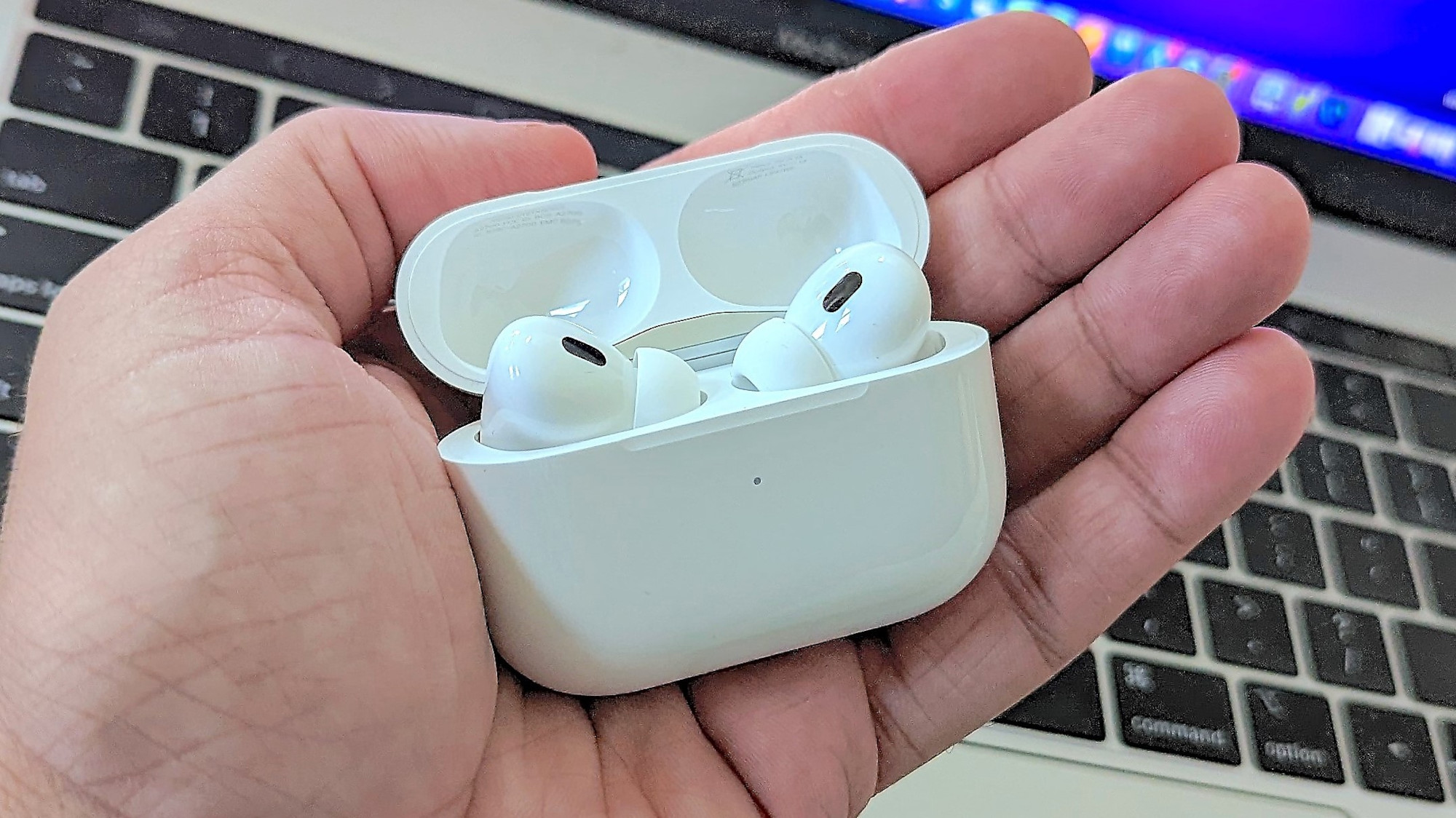
The litany of sensors on the bottom of your Apple Watch Series 10 is what makes it so good at being a body-health tracking device. There's that blood oxygen sensor (although you can't use it in the U.S.), heart rate sensor, ECG — Apple is no stranger to putting health-based tech in its devices to give you a more holistic view of your overall health. Now there's evidence that it's putting that expertise into something a little smaller than an Apple Watch.
Head over to the US patents viewer and search for "patent 20240315584", and you'll find a new patent that relates to "Systems And Methods For Detecting Heart Pathologies". It's a dense old document, filled with loads of difficult-to-decipher technical data and intimidating-sounding language, but there are a couple of key points that illustrate a picture of the idea Apple has.
More health features coming to AirPods
Following hot on the heels of the new hearing aid mode for AirPods Pro 2 announced at the Glowtime event, the new feature will leverage microphones within the buds to measure your heart rate.
Apple, of course, gives us more details in what might be the longest sentence of all time (deep breath now, you'll need it): "The method may include capturing a second signal with a second sensor, processing the second signal to determine a second heart activity of the user, and detecting an association between the second heart activity and the one or more heart pathologies by applying the predictive algorithm to the heart activity of the user in the first microphone signal and the second heart activity of the user."
It seems like the feature will not need any other devices to work (apart from, you know, an iPhone), and its uses are, apparently, many. It could measure blood flow, and detect "heart pathology", which could lead to diagnoses of cardiovascular disease.
It's not the first time we've seen a heart rate monitor land in a pair of earbuds — the Sennheiser Momentum Sport also have monitors for heart rate, although they don't seem quite as in-depth as that which Apple is talking about here.
As always with a patent, this could never see the light of day. If you're interested in more health data, however, then you'll probably hope it does come to a pair of future AirPods — although it's unlikely to be the possibly imminent AirPods Pro 3.







